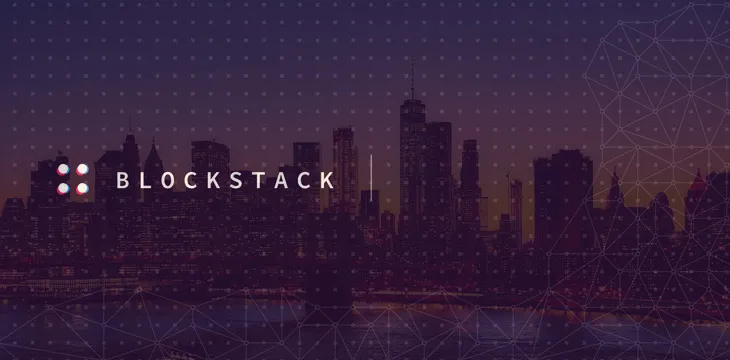|
Getting your Trinity Audio player ready...
|
New York-based blockchain startup Blockstack has announced plans to raise a further $50 million through a token sale, in a move that seeks to rely on the Regulation A+ crowdfunding exemption.
The move was confirmed in a filing with the U.S. Securities and Exchange Commission (SEC), with the firm aiming to raise capital from a U.S. token issue through a subsidiary, Blockstack Token LLC. The company intends to issue Blockstack Stacks (STX) tokens, blockchain issued securities which will be more flexible than a regular IPO, according to the firm.
The Regulation A+ exemption was introduced in the JOBS Act in 2012, and allows companies filing with the SEC to offer securities on two tiers—$20 million and $50 million over a 12 month period, respectively.
Some 295 million STX tokens will be on offer through the sale, starting at a price of $0.30 each. The company hopes to use the funds to develop its decentralized platform, including its app environment, according to a company press release.
“The net proceeds of the offering will be used to accelerate the development of its decentralized computing stack and app ecosystem,” the company said.
The decision to file under Regulation A+ is in line with previous comments from the firm’s founders about private token issues. In late 2017, the firm’s founders said private issues did not invite a diverse enough group of investors to be considered truly decentralized.
Nevertheless, Blockstack has been forced to curtail its previous expectations from US investors, after successfully raising $50 million in a prior token issue back in December 2018.
Some 800 investors were reported to have participated in the previous sale, including the likes of Union Square Ventures, Foundation Capital, Winklevoss Capital and Blockchain Capital.
In a statement, co-founder and CEO Muneeb Ali said the firm had been working closely with the regulator to create the appropriate framework for investment.
“We’ve been working with securities lawyers to create a legal framework that can enable blockchain protocols to comply with SEC regulations,” he noted. “This can potentially set a precedent for others in the industry, not just for public offerings, but also as a path to launch new public blockchains and establish a path to bootstrapping decentralized ecosystems.”

 07-05-2025
07-05-2025 





